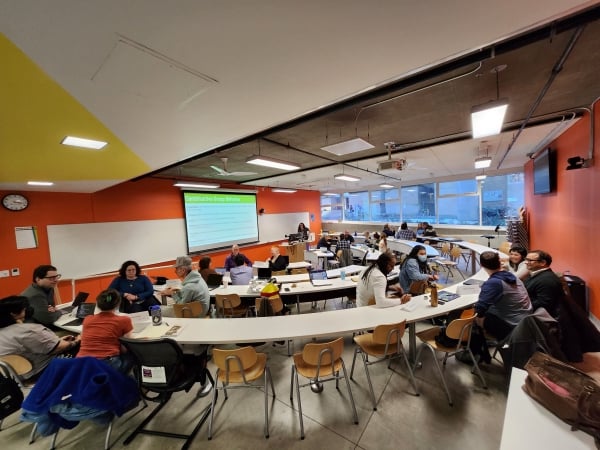In today’s data-driven world, organizations are increasingly relying on data to make informed decisions. Whether it’s analyzing customer behavior, optimizing processes, or identifying trends, data plays a crucial role in driving success. However, harnessing the power of data requires more than just access to information – it also requires a culture that values data-based decisions.
One effective way to establish a data-driven culture within an organization is by building a Data Community of Practice. A Data Community of Practice is a group of individuals who come together to share knowledge, best practices, and resources related to data. By bringing together data experts, analysts, and decision-makers, a Data Community of Practice creates a collaborative environment that promotes data literacy and helps ensure that data is used effectively throughout the organization.
Building a Data Community of Practice involves several key steps. First and foremost, organizations must identify and recruit individuals who are passionate about data and willing to contribute their expertise to the community. These individuals should come from various departments and levels within the organization, ensuring a diverse range of perspectives and experiences.
Once the core group of individuals has been identified, organizations should establish regular meetings and events to facilitate knowledge sharing and collaboration. These meetings can take the form of workshops, training sessions, or discussions on relevant data topics. By creating a space for open dialogue and learning, organizations can foster a culture of continuous improvement and innovation.
In addition to regular meetings, organizations should also invest in tools and resources that support data analysis and decision-making. This could include data visualization software, data management platforms, or training programs for employees. By providing the necessary tools and resources, organizations can empower their Data Community of Practice to make data-based decisions with confidence.
Finally, organizations should encourage a culture of experimentation and learning within their Data Community of Practice. This could involve setting goals for data-driven projects, measuring outcomes, and sharing successes and failures with the group. By creating a safe space for experimentation, organizations can encourage innovative thinking and propel their data initiatives forward.
In conclusion, building a Data Community of Practice is a valuable way for organizations to establish a data-driven culture and drive success through informed decision-making. By bringing together individuals with a passion for data, providing tools and resources, and fostering a culture of experimentation and learning, organizations can harness the power of data to achieve their goals. Ultimately, a Data Community of Practice can help organizations unlock valuable insights and drive growth in today’s data-driven world.



